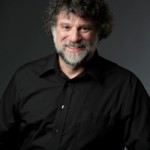The Executive Committee of the Faculty Council has scheduled a meeting with President Tom Rochon and Marisa Kelly, provost and vice president for educational affairs, to discuss the need for greater faculty input in college decisions.

“There is dissatisfaction with a lot of the policies or how policies are being interpreted and implementation of the policies,” Peter Rothbart, professor of music and chair of the Faculty Council, said. “The purpose of the meeting with the president and the provost is discussion and resolution and to gather information.”
About 70 faculty members met for a closed-door, all-faculty town meeting Oct. 9 to voice concerns about shared governance, a concept that encourages collaboration between faculty and administrators to develop ideas and solve problems, and how it is being applied at the college. The concerns surrounded the interpretation and implementation of IC 20/20’s Integrative Core Curriculum and the faculty’s involvement in the drafting of new policies.
Faculty at the meeting asked the Faculty Council Executive Committee to address the issues in a meeting with Rochon and Kelly. The meeting will take place sometime before the next Faculty Council meeting Nov. 13 and another town meeting that will be held the same day to report on the meeting with administrators, Rothbart said.
Rochon and Kelly declined to comment on the upcoming meeting.
Dani Novak, professor of mathematics, attended the town meeting. He said many faculty there candidly expressed frustration with their lack of involvement in policy drafting and implementation.
“What I felt at the meeting is that there are many faculty that are simply very upset,” he said. “Some of them are not happy, because they don’t feel part of [IC 20/20], but I think the fundamental idea behind [IC] 20/20 is a wonderful idea, and it’s geared toward the students.”
Rothbart said the concerns mostly lie with the implementation stage of ICC, and the Faculty Council executive committee hopes to rectify this.
“IC 20/20 is a living, breathing document,” he said. “It’s going to evolve — it has to evolve. Faculty need to be involved in all stages.”
Though only about 10 percent of faculty attended the closed meeting, many are aware of the issues and support the faculty’s initiative to tackle them with the administration.
Arturo Sinclair, assistant professor of television and radio, said he receives emails with updates but finds it difficult to get involved in faculty discussions while teaching four classes. He was unable to attend the town meeting.
“I support the efforts of the faculty, the involvement of the faculty, the efforts to actually have a greater role in shared governance; an effective one, not on paper, you know,” he said.
However, from what he gathers from the meetings he has attended and the emails he receives, Sinclair said, the problem lies in the college structure.
“There is a top-down structure in place. That is how I feel things are done,” he said. “That is why the word ‘corporation’ or ‘corporate structure’ comes on and on throughout these meetings, because everybody feels that is the way things are done, and that is definitely a way of doing it and running it, but it doesn’t play well with a lot of people.”
The new student media policy, which has incited heated discussion on campus, will also be a topic of discussion in the meeting with the president and provost as well as at the next monthly Faculty Council meeting Nov. 13. The Faculty Council consists of about 30 members, but meetings are open to the college community. Rothbart said the media policy is just one component in the larger issue of how decisions are made in light of the concept of shared governance.
“There will be a discussion about the media policy, and I emphasize the word discussion. There are no [Faculty Council] resolutions on the table at this point,” he said.
Steven Skopik, professor of cinema, photography and media arts, said faculty involvement has been an issue recently, because changes in curriculum and policy are happening at a very fast pace.
The application of ICC and IC 20/20 stems from pressure from Middle States Commission on Higher Education, which has accredited the college since 1955.
“Because we are under directive from Middle States to implement an educational core of some kind, we’ve had to step outside of normal policies and procedures whereby curriculum is developed, and it’s a much more centralized, much more top-down approach,” Skopik said.
Some faculty members are unnerved by the rapidity of the changes, he said, and some are glad to see the changes happen so it is “an unsettled messy mix” of opinions.
However, to some faculty, like Novak, the problem is a lack of willingness to collaborate.
“It’s a problem of maturity,” he said. “We have to grow up, but we have to grow up together. We have to think together why are we here and how we can achieve this goal together, and it’s not one person that the fingers can be pointed to in my opinion, but faculty are upset.”







